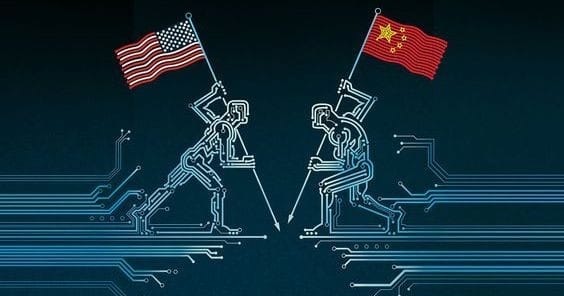From Progress to Protectionism: The Global Tug-of-War Over AI
The Biden Administration’s recent "AI Diffusion" rule exemplifies the tensions surrounding AI regulation, with critics like NVIDIA voicing strong objections to the protectionist measures.

Artificial Intelligence (AI) has emerged as one of the most transformative technologies of the 21st century. From revolutionizing healthcare diagnostics and improving crop yields to enabling autonomous vehicles and advanced robotics, AI has demonstrated its potential to advance society significantly. However, like any powerful tool, it also carries the risk of being weaponized, whether through misinformation campaigns, autonomous weapons systems, or the exacerbation of social inequities.
Furthermore, AI’s role in global geopolitics, particularly between the United States and China, has politicized its development and application, raising concerns about its future trajectory. The Biden Administration’s recent "AI Diffusion" rule exemplifies the tensions surrounding AI regulation, with critics like NVIDIA voicing strong objections to the protectionist measures.
Our Thoughts
- AI as an Advancement and a Weapon
AI’s potential to advance the world is boundless. In healthcare, it can identify diseases early and optimize treatments. In agriculture, AI-driven systems improve yields by analyzing weather and soil conditions. However, the same technology can be weaponized. For example, AI can power disinformation campaigns, leading to societal destabilization by spreading fake news at an unprecedented scale.
Militarized AI applications, such as autonomous drones or surveillance systems, also pose ethical dilemmas, raising questions about accountability in warfare. As nations race to develop these capabilities, ensuring a framework for responsible AI use is critical.
Nations are therefore, wary of the advancement of AI in these areas, and seek to better manage them with controls and measures.
- Politicization of AI and U.S.-China Dynamics
The development of AI is increasingly viewed through a geopolitical lens. The U.S. and China, two AI powerhouses, have embedded AI into their national strategies, not just as a tool for economic growth but also as a lever of influence.
China’s AI development benefits from state-backed initiatives and a vast pool of data, enabling rapid advancements. Meanwhile, the U.S. leverages its innovative private sector, but recent moves, such as the Biden Administration’s "AI Diffusion" rule, suggest a shift towards a more protectionist stance.
While these measures are framed as necessary for national security, they risk hindering global collaboration and innovation.
- Lack of Clarity in U.S. Objectives
The Biden Administration’s objectives behind the "AI Diffusion" rule are ostensibly to curb China’s access to advanced computing resources.
However, critics, including NVIDIA, argue that the rule’s broad scope may stifle innovation within the U.S. itself. The lack of transparency and legislative scrutiny has further fueled concerns.
Is this truly about national security, or is it an overreaction to China’s growing technological capabilities? A clearer articulation of these objectives could help build trust among stakeholders and ensure the policies are aligned with broader goals of fostering innovation and economic growth.
NVIDIA’s Stance
In its statement, NVIDIA’s Vice President of Government Affairs, Ned Finkle, criticized the "AI Diffusion" rule as a misguided policy that undermines America’s technological leadership. Finkle highlighted how past administrations prioritized innovation and competition over regulation, fostering an environment where the U.S. led in AI development.
By imposing sweeping controls on mainstream computing technology, the new rule risks derailing this progress. NVIDIA’s objection underscores the sentiment that open collaboration and competition, rather than isolationist policies, drive technological advancement and secure American interests globally.
Wishes for the United States
To advance AI responsibly and effectively, the United States must adopt a more open and forward-looking approach. Rather than retreating behind protectionist barriers, the U.S. should focus on fostering global collaboration, promoting ethical AI practices, and maintaining its edge through innovation and competition. A balanced policy that safeguards national security while enabling international cooperation could position the U.S. as a leader in shaping a global AI framework that benefits humanity as a whole. Current protectionist measures undermines the country's role as a leader of the world.
As we move forward, the hope is for policies that reflect the spirit of innovation, openness, and progress—aligning with the aspirations of a world united by technology rather than divided by fear.


